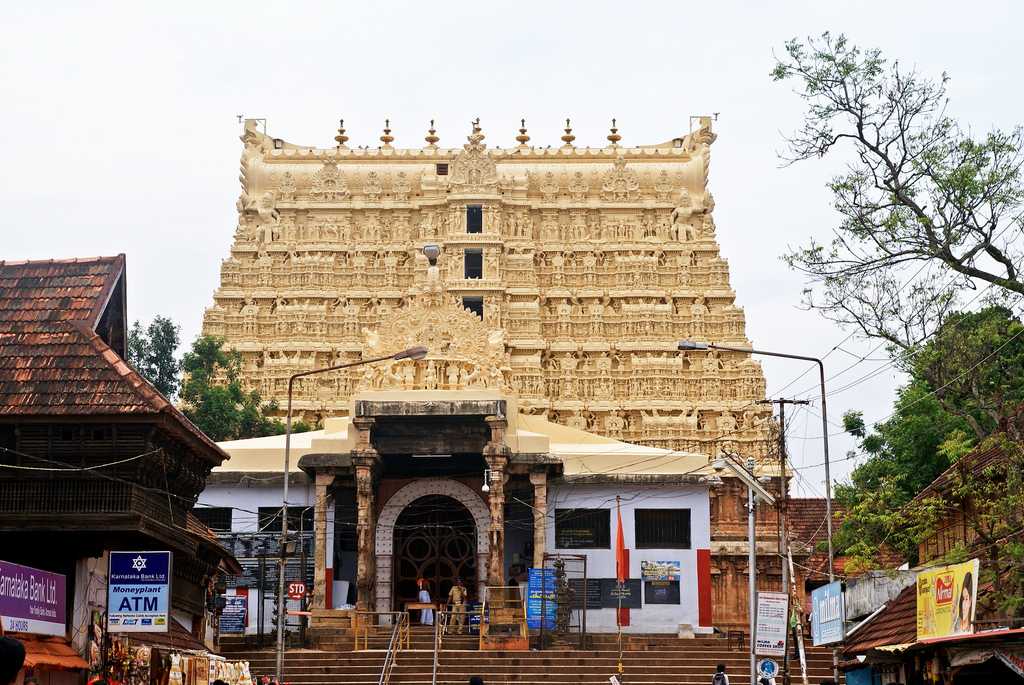In a landmark judgement on Monday, the Supreme Court (SC) has upturned a verdict of the Kerala High Court and ruled that one of the world’s wealthiest shrines, the Sree Padmanabha Swamy Temple in the Thiruvananthapuram, would remain in the hands of the erstwhile Travancore royal family. The High Court (HC) order, on which the appeal went to the SC, had been to hand over the temple governance to the state government.
The wealth of this ancient temple near the coast of the Arabian Sea is estimated to be of the order of more than Rs 140,000 crore (20 billion dollars). The SC ruling apart, feelings are strong that, rather than keeping as much wealth in the temple’s vaults, it could be released for public good or used in ways that the society is benefited. The shrine is cited to be the world’s richest temple.
Allegations of removal of precious gold and valuables had been raised against the temple managing panel consisting mostly of the royal family members, though the overall wealth of the temple had remained the same. The royal family enjoys a high reputation for integrity though authority over the province had shifted from them to the democratically elected governments since Independence. It is this integrity that possibly weighed in favour of them when the Supreme Court took up the appeal. This simple fact highlights the greatly diminishing trust factor on the government in India, whether at the Centre or the States.
The safety of such huge wealth should be a matter of concern for one and all. The royal family’s members in the temple trust change with change of generations. While government officials cannot be trusted with such a large amount of wealth, similarly, the changing generations of the royal family also may not be trustworthy in future. Obviously, this is not a concern limited only to the Sree Padmanabha Swamy Temple. The Lord Venkateswara Temple in Tirupati, run by the Tirumala Tirupati Devasthanams and cited as the second wealthiest temple by virtue also of the huge donations it gets, is another case in point. The earnings of this temple are huge. With the Andhra Pradesh state government playing a major role in the temple’s administration through appointment of members to the trust governing panel, there are frequent allegations of massive loot of the temple wealth. Similar allegations have been raised against other rich temples in the country, and the frenzy of loot is believed to be increasing as years pass, matching with the trend in corruption in public life as a whole.
There have been calls for proper use of this wealth which is lying unutilized for the public or the Hindu community, in ways that would benefit the nation. Once this is done, the issue could arise as to why target only Hindu temples. Jain, Christian and Islamic institutions too have huge wealth stocked without any benefit to the nation. There have been submissions that if the stored wealth of 10 top shrines are released, that could help banish poverty from the country. Admittedly, this argument may sound far-fetched and unrealistic.
On the flip side, fears are that this enormous wealth could end up in the hands of unscrupulous men in power structures who will be tasked with the overseeing of such a transfer. No institution in this country is free from corruption today. Even the Judiciary, which held a great aura of uprightness till recently, is now shamed with instances of corrupt practices. Chances are that if the temple vaults are opened and the stocks taken out, much of it could end up in foreign shores or tax havens and the nation will lose them forever.
The positive side of such a release of shrine wealth cannot be ignored. These Covid times call for a rethink on the way India manages its wealth and economy. Wealth of religious institutions packed in vaults may be taken out for proper use that would benefit the people, if the safety of its proper use is assured through one or other mechanism. Even temple administrations might respond positively to such a collective urge. But the question is, who will assure whom about honest practices. When the nation is being deprived of knowing how much of the PM-Cares Fund is spent where, it might be impossible to expect honesty from lower rung officials.

